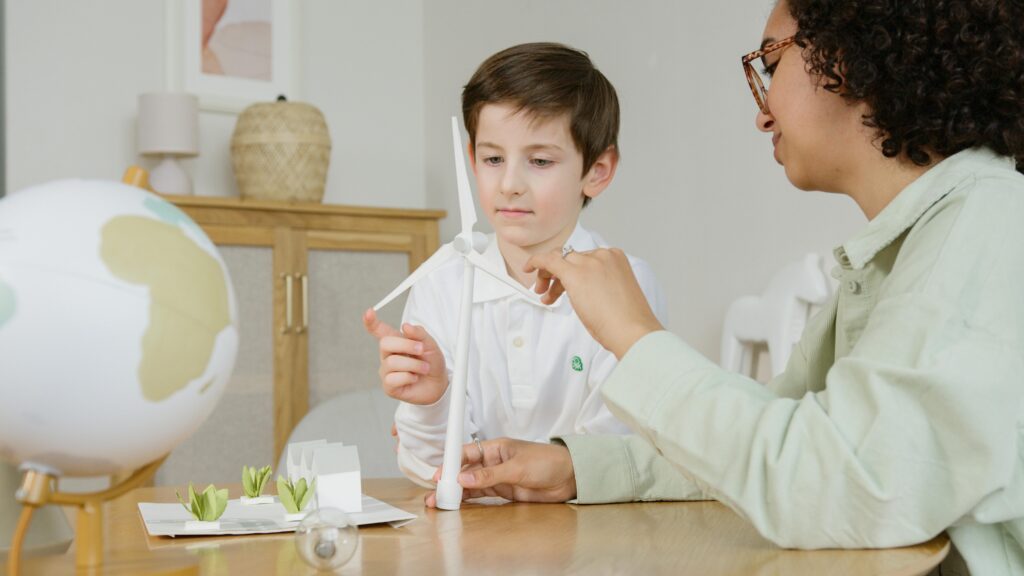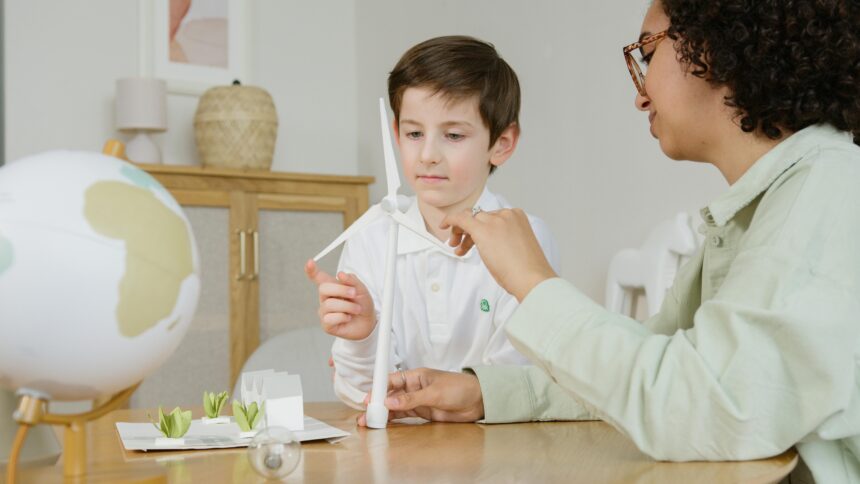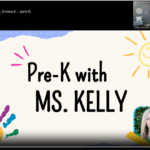
Sustainability education is a holistic approach that empowers individuals with the knowledge, skills, values, and agency to make informed decisions and act responsibly towards a more sustainable future.
In today’s world, sustainability is not just a buzzword; it’s a movement that’s shaping the future of education, business and society at large. As parents, we want to ensure our children are prepared to navigate the complexities of the modern world—one that demands a strong understanding of environmental challenges and solutions. Sustainability education is becoming an essential part of the K-12 curriculum, offering students the tools and knowledge they need to address global environmental issues.
The new sustainability education is a growing field focused on empowering learners with the knowledge, skills, and values needed to address environmental, social, and economic challenges. It aims to foster responsible global citizenship and promote sustainable futures. The new sustainability education is transforming the learning experience for students, especially in the realm of online education. What is the growing importance of sustainability in schools? What are the benefits of incorporating sustainable practices into education? And, how can parents support their children’s understanding of sustainability both in the classroom and at home?
Why Sustainability Education Matters
As concerns about climate change, pollution and resource depletion grow, it’s crucial that the next generation is equipped with the knowledge and skills to make a positive impact. Sustainability education is about more than just teaching kids to recycle; it’s about fostering a mindset that encourages responsibility for the environment and a commitment to sustainable practices.
According to a recent report from the United Nations, the world faces pressing environmental challenges that require immediate attention. For younger generations, understanding these challenges and how they can help solve them will be vital to building a more sustainable future. Integrating sustainability into the education system ensures that children not only learn about environmental issues but feel empowered to contribute to positive change.
Key Elements of the New Sustainability Education
Sustainability education goes beyond traditional environmental studies. Schools are now focusing on how to integrate sustainability across all subject areas, ensuring students grasp the importance in every aspect of their lives. Here are the key components of the new sustainability education.
Environmental Literacy Across Subjects
Gone are the days when environmental education was limited to a single class or subject. Today, sustainability is integrated across various subjects such as science, social studies, economics and even art. Students are learning about renewable energy sources in science, climate justice in social studies and the environmental impact of consumer choices in economics.
In online learning environments, this integration is made possible through digital modules, virtual field trips and interactive lessons that encourage students to explore sustainability from multiple perspectives. This approach ensures that students can see the connections between environmental sustainability and their everyday lives.
Hands-On Learning and Projects
One of the most exciting aspects of sustainability education is the emphasis on hands-on learning. Schools are encouraging students to engage in projects that promote sustainable practices such as growing a school garden, reducing waste or creating eco-friendly products.
Online schools often adapt these projects to a digital format by encouraging students to take virtual field trips to sustainable farms, participate in virtual clean-up campaigns or create sustainability-focused digital presentations. These practical activities help students grasp the real-world implications of sustainability and how their actions can make a difference.
Global Citizenship and Community Impact
Sustainability education also encourages students to think globally and act locally. By teaching children about environmental challenges that affect people worldwide, schools help students develop a sense of global citizenship. They are encouraged to think about how their actions, from conserving water to reducing carbon footprints, can have a positive impact on the planet.
Online learning platforms provide opportunities for students to engage in global discussions, collaborate with peers from different countries and participate in worldwide environmental campaigns. These experiences not only expand students’ understanding of global issues but foster a sense of responsibility for making a positive impact.
Empathy and Ethical Decision-Making
At its core, sustainability education is about fostering empathy for the planet and its inhabitants. Students are taught to consider the ethical implications of their actions, not just in relation to the environment but in terms of social justice and equality.
Through online learning platforms, students are encouraged to explore topics such as environmental racism, the ethical use of resources and how climate change disproportionately affects vulnerable communities. These discussions help students develop a deeper understanding of how sustainability intersects with social, economic and political issues.
The Role of Parents in Sustainability Education
While schools are playing a key role in integrating sustainability into the curriculum, parents also have a vital role to play in supporting their children’s learning about sustainability. Here are some ways parents can encourage sustainability both in and outside of the classroom.
- Model sustainable practices at home. Children learn a great deal by observing their parents. By adopting sustainable habits at home such as reducing waste, conserving water or opting for eco-friendly products parents can set a powerful example for their children. These actions show children that sustainability is a lifestyle, not just something learned in school.
- Engage in conversations about sustainability. Talking about sustainability at home can reinforce what children are learning at school. Ask your child what he’s learning about sustainability, discuss climate change and explore ways your family can reduce its environmental impact. These conversations help children see the relevance of sustainability in their daily lives and encourage them to think critically about how they can contribute to a greener future.
- Support sustainability projects and initiatives. Encourage your child to get involved in sustainability projects, whether at school, in the community or at home. Support their participation in activities such as tree planting, community clean-ups or starting a recycling program. These projects give children hands-on experience in sustainability and show them that their actions matter.
- Leverage online resources for further learning. There are numerous online resources such as websites, apps and documentaries that can help expand your child’s knowledge of sustainability. Many online schools provide additional sustainability-focused content such as virtual nature tours, eco-friendly DIY projects and more. By exploring these resources together, you can deepen your child’s understanding of the environment and its importance.
The Future of Sustainability Education
As environmental challenges continue to evolve, sustainability education will become even more important. The new sustainability education model is designed to equip students with the knowledge, skills and mindset they need to become environmental stewards and problem-solvers. By integrating sustainability across subjects, encouraging hands-on learning and fostering global citizenship, schools are preparing students to face the challenges of the future.
For parents, supporting this learning at home is just as crucial. By modeling sustainable behavior, engaging in conversations about the environment and utilizing online resources, parents can help their children understand that sustainability is not just an academic subject but a way of life.
Sustainability education is shaping the future of our children, teaching them how to care for the planet and build a better, more sustainable world. With more schools incorporating sustainability into their curricula, especially in online education, students are empowered to take action and make a real difference. As a parent, you can support and nurture your child’s learning, ensuring he grows up with a deep understanding of the importance of sustainability and his role in creating a greener future.















